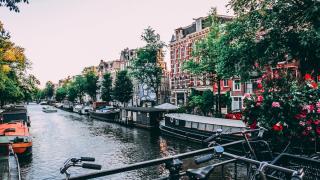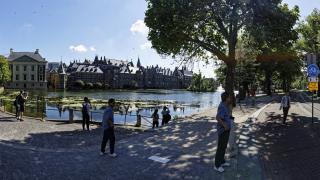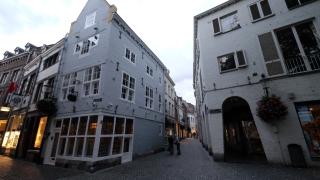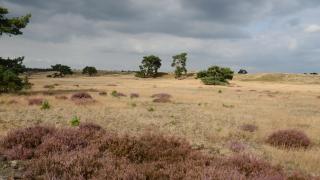Apartment Living, Dutch Style
Apartments in the Netherlands are common in cities like Amsterdam, Rotterdam, and Utrecht. Typical buildings include canalside "grachtenpanden," 20th-century walk-ups, and modern high-rises. Many apartments are in converted warehouses or former schools. Dutch apartments often have steep staircases and compact layouts. Living rooms face the street or canal. Kitchens are usually small but well-equipped. Most have washing machines, but dryers are rare. Balconies or shared courtyards are common in newer complexes.
Travelers choose apartments for privacy and local atmosphere. Rentals offer more space than hotels. Expect furnished options, especially for short stays. Monthly rent in Amsterdam averages €1,500–€2,000 for a one-bedroom. In smaller cities, prices start around €900. Minimum rental periods are often one month. Utilities may be included or charged separately. Most apartments have fast Wi-Fi and basic furnishings. Parking is limited, especially in city centers. Public transport is usually within a 5-minute walk.
Key Dutch features:
- Tall windows for light
- Bike storage
- "Gemeenschappelijke" (shared) entrances
- Strict recycling rules
Types of Dutch Apartments
Apartments in the Netherlands fall into several categories. The Dutch term for apartment is "appartement". A studio is a small, single-room apartment, often under 35 m², common in cities. Bovenwoning refers to an upper-floor apartment, usually above shops or houses, found in older city centers. Short-stay apartments are furnished, available for 1-6 months, and often located in Amsterdam or The Hague. Serviced apartments offer cleaning and utilities, targeting expats or business travelers. Prices start from €1,500 per month in Amsterdam. Vacation rentals ("vakantiehuisje" or "huisje") are popular in rural areas and coastal regions. These are often detached, suitable for families, and rented weekly.
- City center apartments are compact, often in historic buildings, and suit solo travelers or couples.
- Suburban apartments are larger, with more green space, and fit families.
- Rural huisjes offer privacy and are ideal for groups or families.
Typical occupancy: studios for singles, 2-3 room apartments for couples or small families. Most Dutch apartments are unfurnished ("kaal") unless specified. Rental contracts usually require a minimum stay of 12 months, except for short-stay and vacation rentals. Distances from city center to suburbs are 5-15 km, usually 20-30 minutes by bike or public transport.
Booking Like a Local
Apartments in the Netherlands are listed on both Dutch and international platforms.
- Funda (funda.nl) and Pararius (pararius.com) are the main Dutch sites for long-term rentals.
- Kamernet.nl is popular for rooms and studios, especially for students.
- International platforms like HousingAnywhere and Expatica list English-language options.
- Airbnb and Booking.com offer short-stay apartments, but prices are higher and stays are often limited to 30 days.
Municipal registration ("inschrijven") is required for stays over 4 months.
- Only apartments with a valid rental contract allow registration at the local gemeente (municipality).
- Sublets and illegal rentals often do not permit registration.
Documents usually needed:
- Proof of income (salary slip or employment contract)
- Copy of passport or EU ID
- Sometimes a Dutch guarantor or employer reference
- Deposit: typically 1-2 months' rent
To avoid scams:
- Never pay cash or via Western Union.
- Always visit the apartment or arrange a video call before paying a deposit.
- Check the address on the Kadaster (Dutch land registry) to verify ownership.
Read reviews and check for hidden fees.
- Some landlords charge "key money" (illegal in the Netherlands).
- Agency fees for tenants are not allowed for most rentals since 2015.
- Utilities are often excluded from the listed rent.
Costs, Fees, and Budgeting
Apartment prices in the Netherlands vary by city and season.
- In Amsterdam, average nightly rates for short stays are €120–€180. Monthly rentals start at €1,400 for a one-bedroom.
- Rotterdam is cheaper. Expect €90–€130 per night, or €1,100–€1,300 per month.
- Utrecht rates are similar to Rotterdam. The Hague is slightly higher, especially near the coast.
Common extra fees:
- Cleaning fees: €40–€80 per stay (short-term)
- Tourist tax: 5–7% of booking cost (varies by municipality)
- Utilities: Often included for short stays. For long-term, budget €120–€200/month for gas, water, electricity.
- Deposit: Usually one month’s rent. Sometimes two months for furnished apartments.
Tips for saving:
- Book outside peak months (April–September) for lower rates.
- Longer stays (28+ days) often get discounts.
- Apartments outside city centers (e.g., Amsterdam Noord, Rotterdam Zuid) are cheaper.
Budgeting for groceries:
- Supermarkets like Albert Heijn and Jumbo are common. Weekly groceries for two: €70–€90.
- Most Dutch apartments have full kitchens for self-catering.
Essential Tips for a Smooth Stay
Dutch apartments often have steep, narrow staircases. Elevators are rare in pre-1980 buildings. Quiet hours are enforced from 22:00 to 07:00. Noise complaints are common in Amsterdam and Utrecht. Waste separation is strict. Use separate bins for plastic, paper, glass, and organic waste. Collection days vary by city; check the local 'Afvalwijzer' app. Most apartments have compact appliances. Washing machines are often in the bathroom or kitchen. Dryers are less common; use drying racks. Bike storage ('fietsenstalling') is usually in the basement or courtyard. Lock your bike with two locks. If something breaks, contact your landlord ('verhuurder') or property manager. Repairs for heating, electricity, or plumbing are usually handled within 48 hours. In emergencies, call 112. For non-urgent police, dial 0900-8844. Dutch neighbors value privacy and direct communication. Greet neighbors with a simple 'Hallo' or 'Goedemorgen.' Checklist before arrival: Confirm Wi-Fi details, check for towels and bedding, ask about recycling, and clarify heating controls. Always register at the municipality ('gemeente') for stays over four months. This is required by law.












